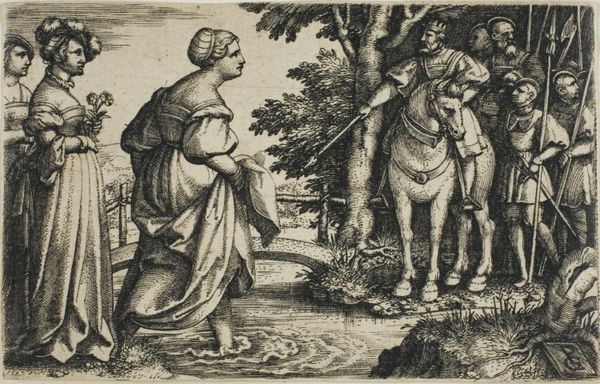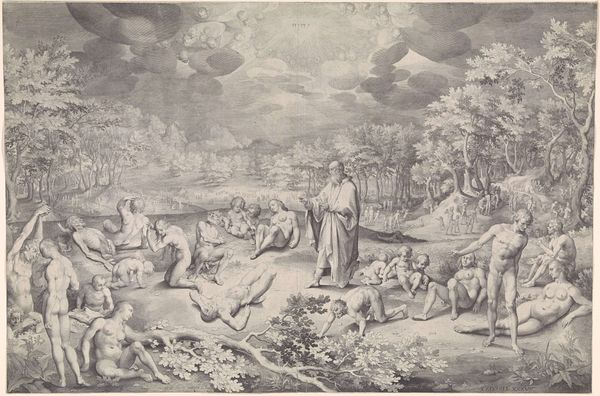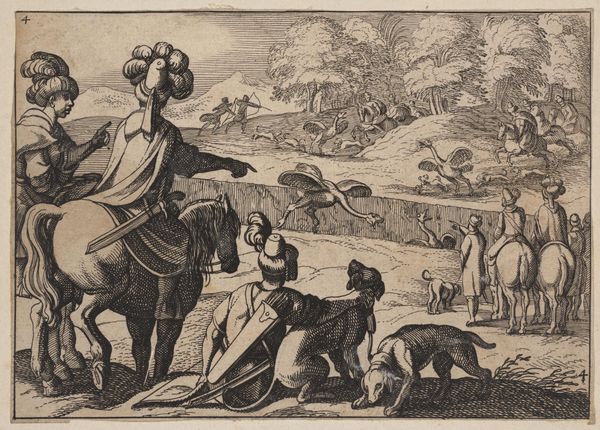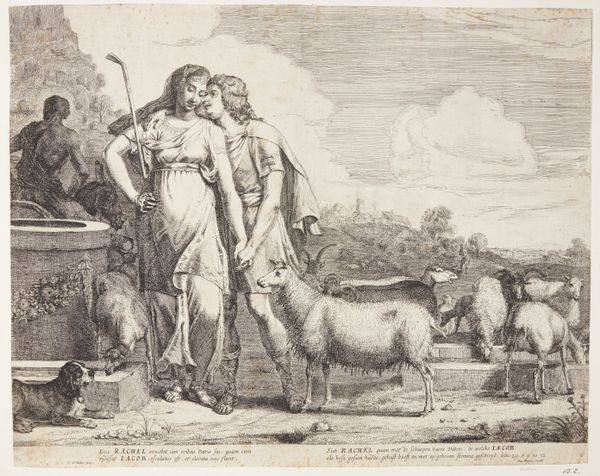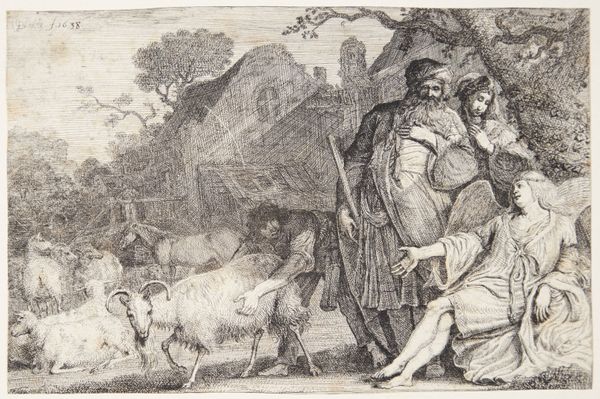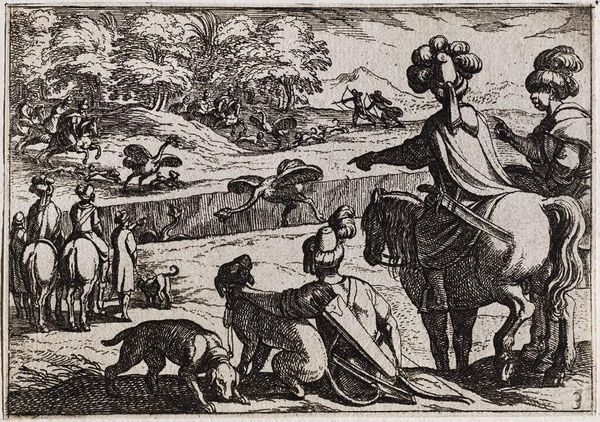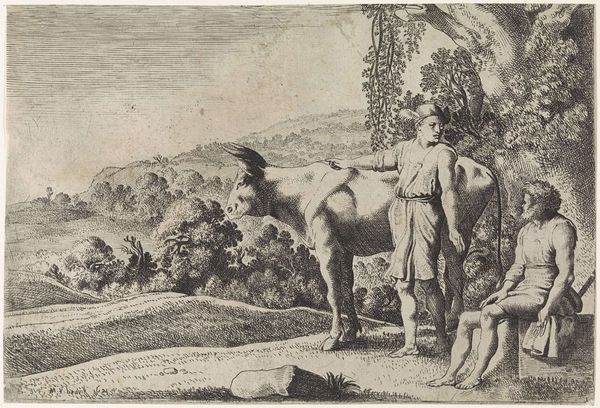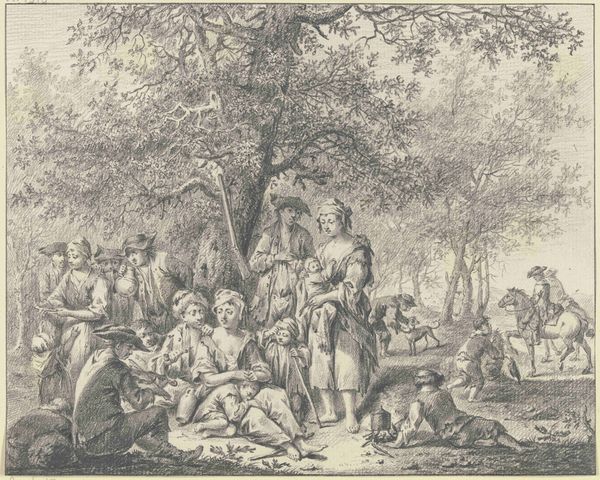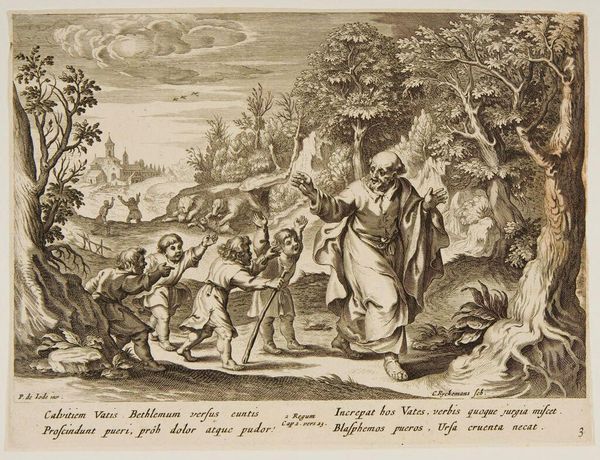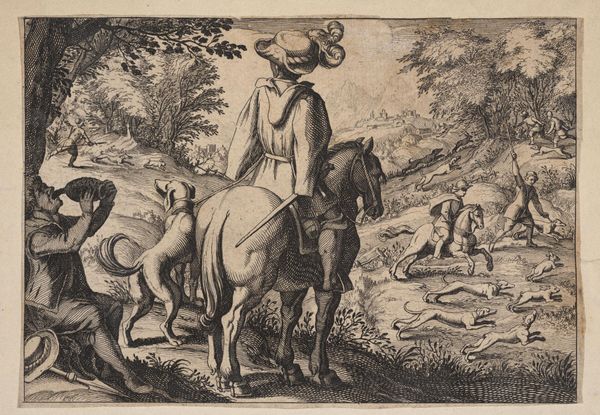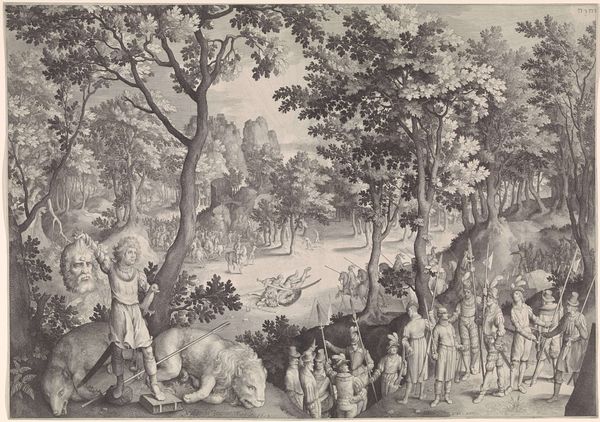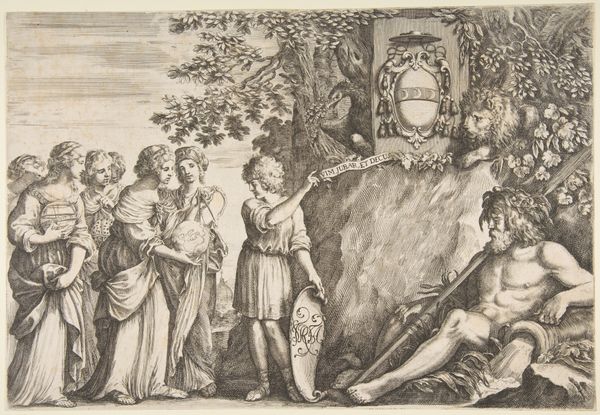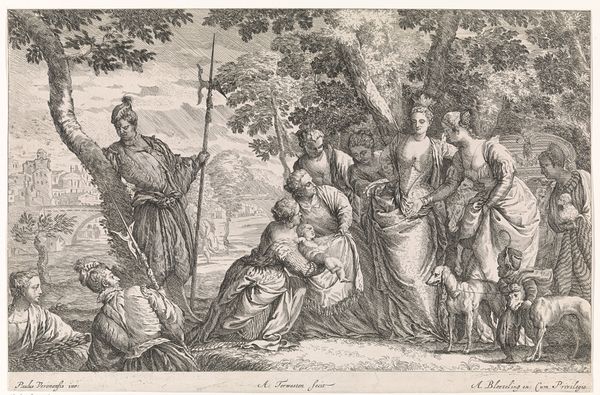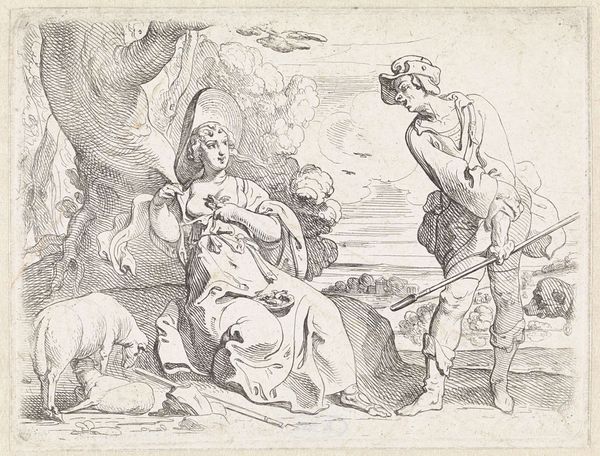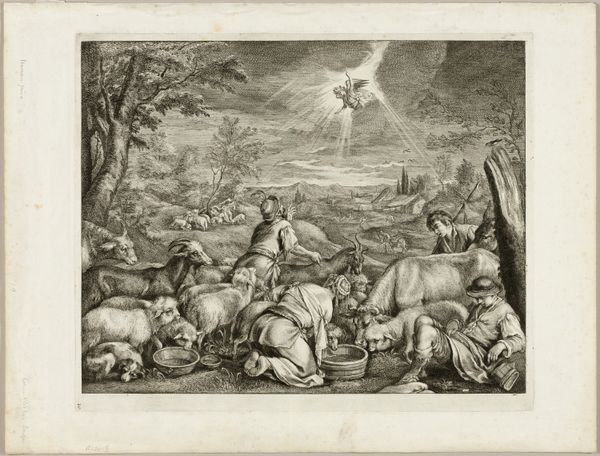
painting, oil-paint
#
narrative-art
#
painting
#
oil-paint
#
landscape
#
figuration
#
oil painting
#
romanticism
#
mythology
#
genre-painting
#
realism
Copyright: Public domain
Curator: Immediately, what strikes me is this overriding sense of naïve optimism. The composition is quite unusual—a cluster of animals juxtaposed with this dense group of figures, all radiating serenity despite being a rather unnatural grouping. Editor: This is "Peaceable Kingdom" by Edward Hicks, completed around 1830. Hicks was an American folk painter and a Quaker minister, and he returned to this allegorical scene many times throughout his career. It’s oil on canvas. What’s especially intriguing is the way he combines religious ideals with his own observations of American life and the fraught relationships that were, and are, omnipresent. Curator: Absolutely, it’s that synthesis of spiritual yearning and earthly observation that I find compelling. Take the lion, for example, nestled beside the lamb – the artist clearly pulls from Isaiah's vision of a restored world, one where predator and prey exist in harmony. Editor: Right, the specific verse from Isaiah 11. And not only does it reflect utopian desire but also acknowledges historical reality through its complex figures on the left. It alludes to William Penn’s treaty with the Lenape people, framed with the banner “Peace on Earth,” however, the artist also wrote the phrase "all men except the Africans" which raises concerns about the inherent inequalities of even so-called peace treaties, like the historical oppression of Native Americans alongside the enslavement of African people. Curator: A powerful point about the exclusionary nature of early American ideals. I hadn't quite made that connection, but it seems quite pointed. As I reflect on it, it infuses the overall image with complexity, challenging its initial sweetness. It acknowledges a painful reality. Editor: And what resonates deeply with me is Hicks's personal struggle with worldly affairs and the Quaker ideal of inner peace. The "Peaceable Kingdom," therefore, isn't a passive ideal, it serves as an urgent prompt—an imperative toward dismantling systemic violence and working toward genuine peace, inclusive of all, not in spite of those actively discriminated against. Curator: Well, your reading helps to see just how much is held within what might be a superficially placid image. The personal and the political so vividly present! Editor: Agreed. Hicks delivers a symbolic, timeless vision, albeit one burdened with an important challenge toward creating peace.
Comments
No comments
Be the first to comment and join the conversation on the ultimate creative platform.
